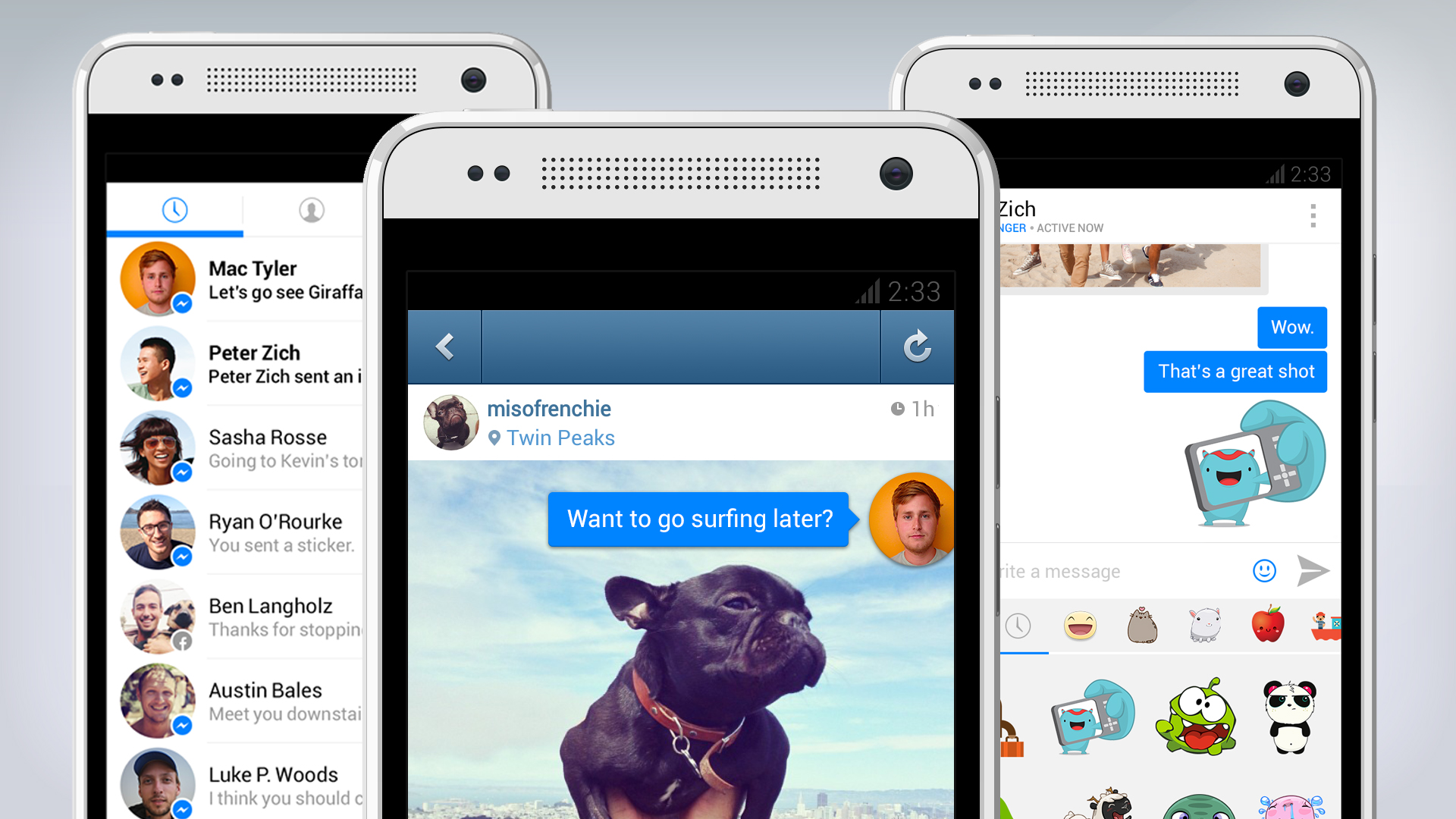Facebook is eating the internet and becoming the Borg
This week it's papers and phones. Next week, it'll be your soul

It must be amazing to work for Facebook. Where other people might encounter a minor irritation and think "ah, that's a bit annoying", Facebook thinks "let's solve it by making it part of Facebook!"
That's no doubt the thinking behind Facebook's latest bright idea, which is to stop people visiting newspaper and magazine websites and getting them to view the content on Facebook instead.
According to the New York Times: "In recent months, Facebook has been quietly holding talks with at least half a dozen media companies about hosting their content inside Facebook rather than making users tap a link to go to an external site… News articles on Facebook are currently linked to the publisher's own website, and open in a web browser, typically taking about eight seconds to load. Facebook thinks that this is too much time, especially on a mobile device".
Imagine the suffering that will be eased when it doesn't take up to eight seconds – eight seconds! – to visit a website and wait for its page to load. Imagine how much easier everybody's lives will be when Facebook runs the back-end, serves up the ads, tracks the visitors and tweaks what it knows about them.
The same applies to phones. Isn't it annoying when, about once every couple of weeks, you get a call from somebody you don't want to talk to? Wouldn't it be great if Facebook could scan all your contacts, provide your phone app and screen your calls for you? Of course it would!
It applies to the internet too. Isn't the internet expensive and rubbish? Wouldn't it be great if we just replaced the internet with Facebook, and got operators to give it to us for free, and trusted all of our messaging personal data and interpersonal interactions and shopping and health data and hopes and fears and dreams and darkest secrets with Mark Zuckerberg and his happy team of awesome engineers! Of course it would be!
Facebook wants to be everything to everybody. It bought Instagram because it wants to be your photo provider. It bought WhatsApp because it wants to be your messaging provider. It bought Oculus because it wants to be your VR provider. It bought Ascenta because it wants drones to bring Facebook to every corner of the world.
Get daily insight, inspiration and deals in your inbox
Sign up for breaking news, reviews, opinion, top tech deals, and more.
Facebook wants to replace the internet.
What could possibly go wrong?
Well… everything.
Power corrupts
Let's look at another tech giant, the Google of "don't be evil" fame. Leaked documents from the US Federal Trade Commission demonstrate that Google threatened to ban websites from search results if they didn't let Google use its content, among many other examples of Google throwing its considerable weight around in "it's my way or the highway" fashion.
You'll recall Microsoft getting into similar hot water over its bully-boy tactics during the browser wars. The regulators moved against Microsoft for that, and it seems EU regulators will soon file charges against Google. And in a few years time, they'll no doubt be filing against Facebook.
Tech firms have a tendency to try and control everything, and they often end up with nothing as a result.
Remember CompuServe and AOL, the dinosaurs of the dial-up era? They tried to hang onto their dying business and pretend the open internet didn't exist, and the former is long gone while the latter is a shadow of its former self, employing Nathan Barley-esque visionaries while relying on dial-up subscriptions from people who are very old or very dead. Microsoft's browser bullying meant it didn't innovate, leaving a gap Firefox and later Chrome would gladly fill. And Google may have escaped US regulatory scrutiny, but it's attracted the ire of the EU.
The problem with organisations such as Microsoft, Google and Facebook isn't that they're evil. Far from it. They genuinely believe that what's best for Microsoft, or for Google, or for Facebook, is what's best for you and me – so when they start throwing their weight around they genuinely don't think they're being wicked.
Wickedness might not be the intention, but it could well be the reality. Let's say you're a publisher, and you throw your weight behind Facebook. You let Facebook publish your content. You let Facebook run the ads. You sign a deal with Facebook to get X amount of the income for Y years.
You're happy, and then Facebook changes the game.
Paging Mr Mephistopheles
Relying on somebody else's platform is a Faustian pact. Look at the music industry, clinging to the streaming liferaft while it destroys their margins. Look at magazines, giving their worldly possessions to Readly for a fraction of what they got previously (I'm sure I'm not the only person who's binned stacks of subscriptions for Readly's £9.99 per month). Look at broadcasters waking up in the wee small hours having had another nightmare about Netflix.
The thing about Faustian pacts is that their benefits only last so long. In the legend, Faust got 24 years of unlimited knowledge and worldly pleasures before the Devil came to claim his soul.
You can be pretty sure that if you hand over the reins to Facebook in return for traffic, or your phone app in return for slightly better screening, you'll end up regretting it a lot more quickly than that.
Writer, broadcaster, musician and kitchen gadget obsessive Carrie Marshall has been writing about tech since 1998, contributing sage advice and odd opinions to all kinds of magazines and websites as well as writing more than a dozen books. Her memoir, Carrie Kills A Man, is on sale now and her next book, about pop music, is out in 2025. She is the singer in Glaswegian rock band Unquiet Mind.
